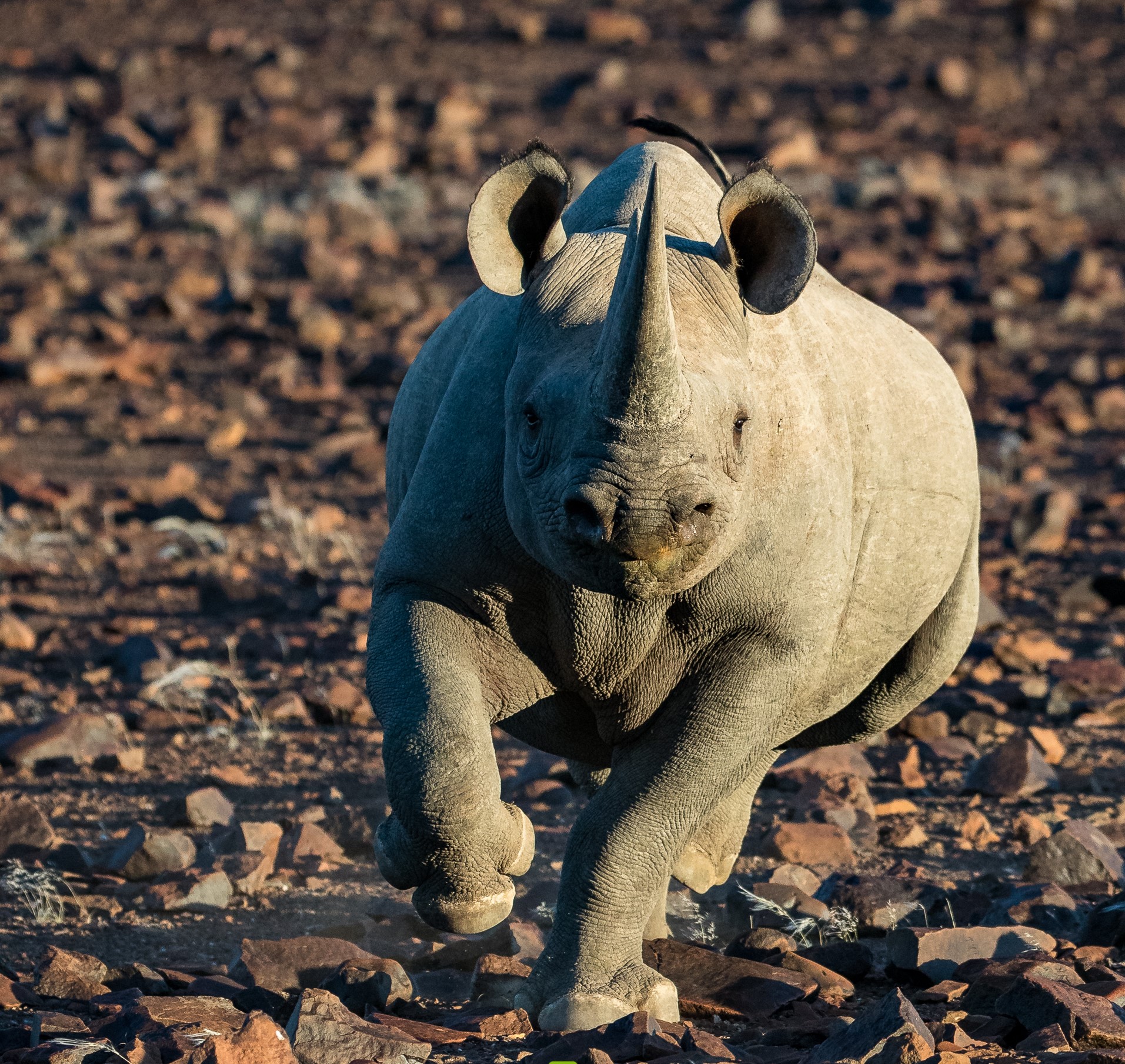Save the Rhino Trust (SRT) works tirelessly to protect the last free-roaming population of black rhinos (Diceros bicornis bicornis) left in the world. The Black rhino is a “critically endangered” species according to the IUCN Red List of Threatened Species™. Covering an area of 25,000 km2, SRT’s trackers come from local communities and possess a deep knowledge of rhinos and their surroundings. Their skills are tested during long patrols, on foot in an area with no national park status, no fences and no controls over who enters and exits.
This OACPS-EU-funded project will contribute to improving resiliency of rhino custodian communities against external pressure. It will improve collection of rhino monitoring data through the use of new technology in the field as well as the installation of critical infrastructure needed for communication and well-being of rhino trackers whilst on patrol. These activities ensure that rhino tourism and the existing rhino ranger programme remain sustainable and benefit biodiversity and local communities’ livelihoods.
The rhino ranger programme has been noted as one of the most innovative community based rhino conservation initiatives in Africa. The approach of incentivising local participation in conservation has contributed significantly to the reduction of poaching in the landscape and income from rhino monitoring has provided a sustainable form of alternative livelihood income for the approximatively 50 community-based rhino rangers currently working in the region.
“I am very impressed with the way that conservation in Namibia is moving and the support shown to us, especially during the COVID-19 crisis. The partnership with BIOPAMA comes at a pivotal moment because it allows us to continue our important work when a reduction of funding for many conservation initiatives means that poaching is likely to increase.”, says Simson Uri-Khob, CEO of Save the Rhino Trust Namibia.
“Namibia is an acknowledged pioneer in the sustainable management of wildlife and have had great success through their community-based natural resource management (CBNRM) approach. The EU is delighted to be a partner in supporting the SRT through the BIOPAMA Programme. We are confident that this grant will build and expand on the excellent work already being done by them in rhino monitoring and developing conservancies. We are equally pleased to collaborate with IUCN, who provides invaluable guidance and expertise in this endeavour. Biodiversity conservation remains a priority for the EU and a means to attain the UN Sustainable Development Goals.”, said Sinikka ANTILA, EU Ambassador to Namibia.
In the media: Namibia Economist (18 December 2020)
- Desert Adapted Black Rhino_credit Andrew Beck
- Training of SRT trackers_credit SRT
- SRT tracker and black rhino_credit SRT
Related News

prev






